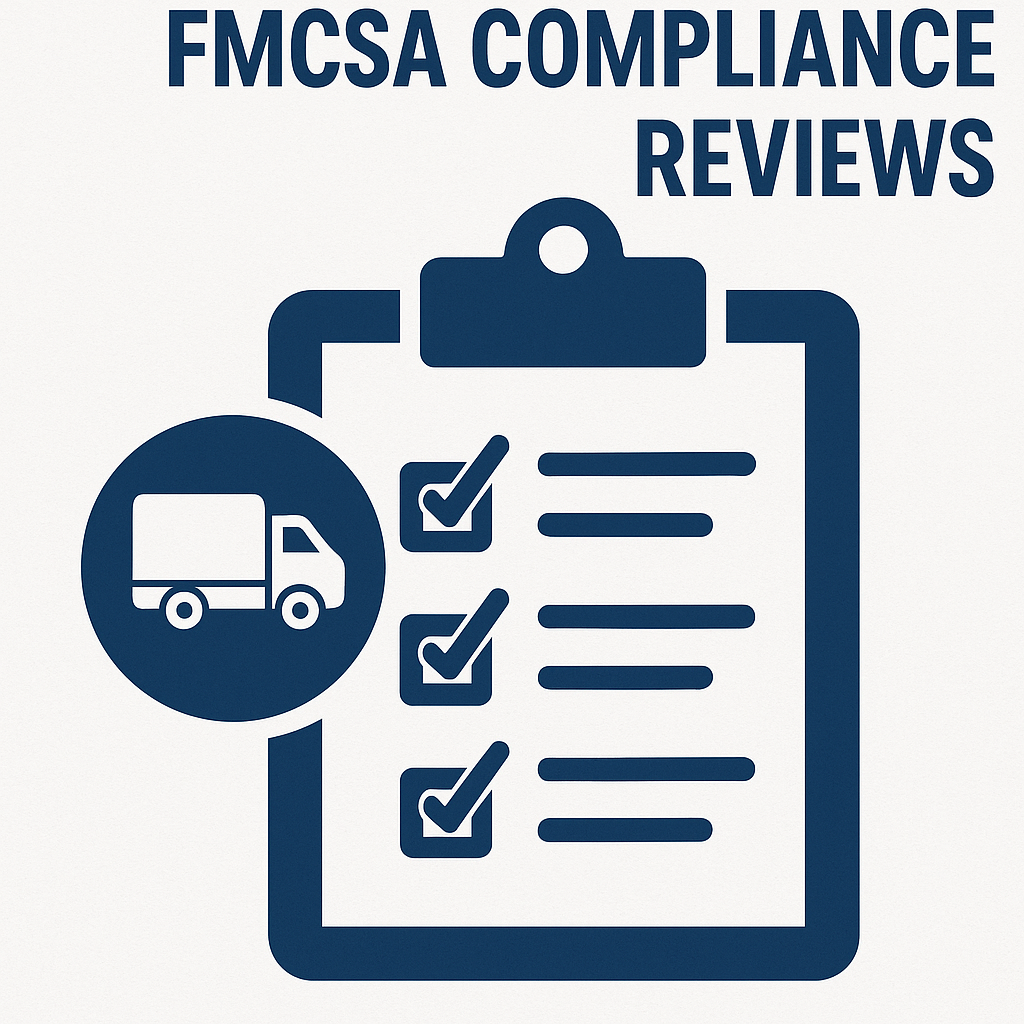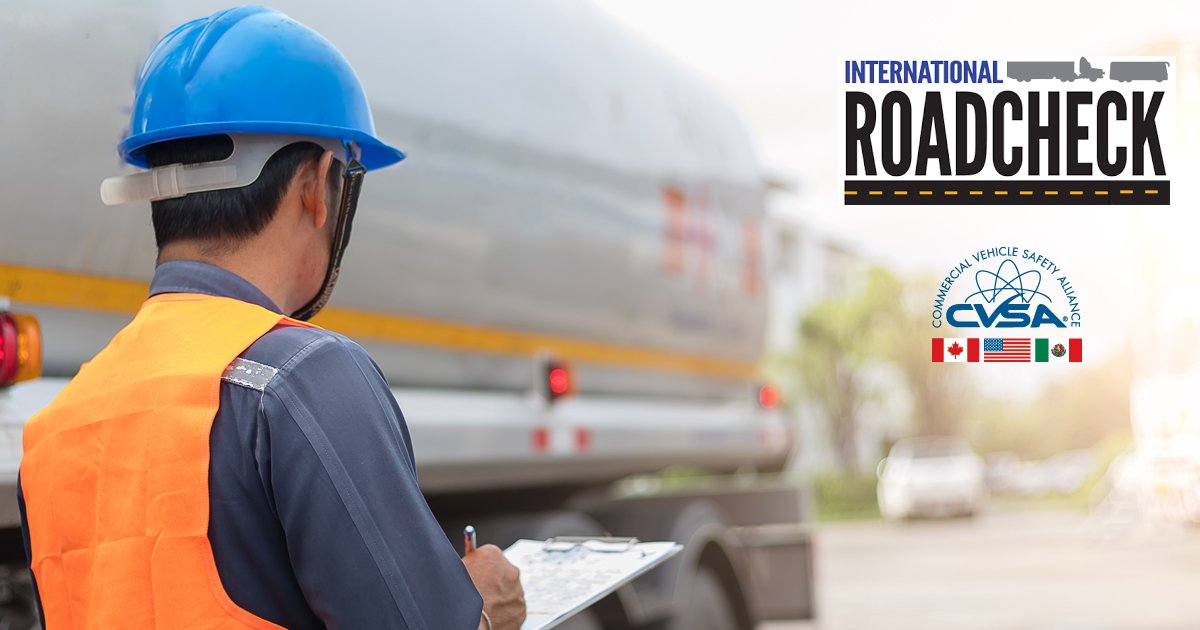Safety First: Navigating FMCSA Audits and Addressing the Truck Driver Shortage
In an industry as vital as trucking, safety and compliance aren’t just regulatory checkboxes—they're essential to the very fabric of successful operations. With the Federal Motor Carrier Safety Administration (FMCSA) conducting audits and interventions to uphold these standards, understanding what to expect during these inspections is crucial for every motor carrier. At the same time, the trucking industry faces significant workforce challenges, including an alarming shortage of drivers that threatens its stability. As we dive into these topics, we'll explore the common triggers for FMCSA audits, best practices for maintaining compliance, and how the industry can address the growing need for qualified truck drivers. Join us as we navigate the complexities of safety regulations, industry statistics, and the importance of fostering a new generation of truck drivers while promoting road safety for all.
In this issue:
- Understanding Why Carriers Get Audited
- What to Expect During a Compliance Audit
- Tackling the Driver Shortage in Trucking
- Managing an Aging Driver Workforce
- May is National Bicycle Safety Month
- International Roadcheck 2025 May 13-15
- Registration is open online for the 2025 Idealease/NPTC Spring Safety Seminar!
Read, share, and/or print this week's Safety Bulletin.
Check out past Idealease Safety Bulletins.
🚨 FMCSA Audits: What You Need to Know
When a motor carrier receives contact from the Federal Motor Carrier Safety Administration (FMCSA) or a state enforcement agency regarding an audit or intervention, it is typically because their Compliance, Safety, and Accountability (CSA) scores have surpassed a significant threshold. While CSA scores are the most frequent reason for such contact, they are not the only one.
Given the limited number of FMCSA enforcement officers, the agency often collaborates with state enforcement agencies to carry out inspections and reviews.
🔍 Common Reasons for FMCSA Audits or Interventions: 
- New entrant to the industry
- Follow-up after a conditional or unsatisfactory safety rating
- Involvement in a high-profile fatal accident or hazardous materials spill
- Carrier-requested audits
- Formal complaints submitted to FMCSA regarding non-compliance
🕒 How Much Advance Notice is Given?
Usually, carriers receive a notification two weeks ahead of time through a written letter. However, in more critical situations, inspectors might show up without prior notice.
✅ What to Expect When Inspectors Arrive:
- Ask for identification (required for all federal/state employees).
- Be respectful and professional—host in a quiet, distraction-free space.
- Offer water, coffee, or soda—but never offer meals or gratuities.
- Clarify your preferred communication method (text, phone, etc.).
📁 Be Ready to Provide:
Inspectors come with data from your CSA profile. Be prepared to provide documentation for:
- Proof of financial responsibility (MCS-90 for for-hire carriers)
- Driver qualification and training files
- Drug and alcohol policy/testing records (for CDL drivers)
- Hours of Service logs and supporting documentation
- Vehicle maintenance and inspection records (including tech certifications)
- Hazmat documentation, if applicable
- Accident register and reports
- Medical certifications for drivers
👥 Best Practices During a Review:
Keep your cool, be truthful, and reply quickly. A structured safety and compliance program can have a significant impact.
🚛 Do We Have Enough Truck Drivers?
The American Trucking Associations (ATA) predicts a shortage of 60,000 truck drivers, which could increase to 82,000 by the end of the year. This shortfall is primarily attributed to an aging workforce and a lack of interest from younger generations. Currently, the average age of truck drivers is 46, which is significantly older than in many other industries. The ATA estimates that the trucking industry will need to hire 1.2 million new drivers over the next ten years, with nearly 50% of those hires needed to replace retiring drivers.
📊 Key Stats:
- Drivers aged 55+ have grown by 19% in the past 25 years—now totaling ~616,000
- 33% of new hires are needed due to industry growth
- No maximum age limit for CDL drivers, but all must pass a valid medical exam per CFR 391 standards
🚦 Ensuring Driver Safety in an Aging Workforce
Transportation managers play a vital role in assessing and supporting all drivers—regardless of age.
Best Practices:
- Develop non-biased safety and loss control policies
- Use FMCSA-registered medical examiners familiar with your operation
- Write job descriptions based on actual driver duties
- Require annual defensive driving training
- Conduct structured check rides annually
- Maintain regular communication with drivers
- Consistently observe and document driving behavior
🚴 May is National Bicycle Safety Month
Biking is a healthy and eco-friendly way to travel, but it comes with risks such as accidents and injuries. May is National Bicycle Safety Month, a time for increased awareness about road safety for both cyclists and drivers. The National Highway Traffic Safety Administration (NHTSA) highlights the need for cyclists to wear helmets, obey traffic signals, and use hand signals. Drivers should remain vigilant, keep a safe distance, and check mirrors before changing lanes. By promoting safety measures and responsible road sharing, we can ensure biking remains a safe and enjoyable option for all.
🚨 2022 Bicycle Safety Stats:
- 1,105 bicyclist fatalities
- 46,195 estimated injuries
Whether you're behind the wheel or on two wheels:
- Drivers: Stay alert and give space
- Cyclists: Wear helmets and obey traffic laws
Thanks for promoting safer roads—this month and year-round!
International Roadcheck 2025 May 13-15
The Commercial Vehicle Safety Alliance (CVSA) will host its International Roadcheck from May 13 to 15. This high-visibility initiative focuses on commercial vehicle inspections and regulatory compliance across Canada, Mexico, and the United States.

CVSA-certified law enforcement officers will inspect vehicles and drivers at weigh stations and other sites to ensure adherence to regulations. Results from this 72-hour event will be published later this summer.
For 2025, Roadcheck will emphasize two main focus areas:
- Tractor protection systems
- Alcohol and controlled substance possession
The rising number of drivers found in violation of drug and alcohol regulations is a significant concern for public safety. Inspectors will conduct a comprehensive North American Standard Level I Inspection during the event, evaluating vehicle components and driver compliance with regulations.
Registration is now open online for the 2025 Idealease/NPTC Spring Safety Seminars!
Idealease and the National Private Truck Council NPTC will again be hosting safety seminars in the spring and fall of 2025. The one-day seminar this year will focus on basic safety and compliance, regulation changes and CSA. The seminars and will be provided to all Idealease customers, potential customers and NPTC members at no charge. The seminar provides important information applicable for both the novice and experienced transportation professionals.
Spring Seminars 2025
- 4/29/2025 – San Leandro, CA
- 5/1/2025 – Portland, OR
- 5/6/2025 – Hollywood, FL
- 5/8/2025 – Harrisburg, PA
- 5/13/2025 – Columbia, SC
- 5/15/2025 – Tampa, FL
To register for an upcoming spring seminar in 2025, click on the following link:
Safety Seminar Registration
Note: Fall seminars will be announced in a later bulletin.
*The Idealease Safety Bulletin is provided for Idealease locations and their customers and is not to be construed as a complete or exhaustive source of compliance or safety information. The Idealease Safety Bulletin is advisory in nature and does not warrant, guarantee, or otherwise certify compliance with laws, regulations, requirements, or guidelines of any local, state, or Federal agency and/or governing body, or industry standards.
